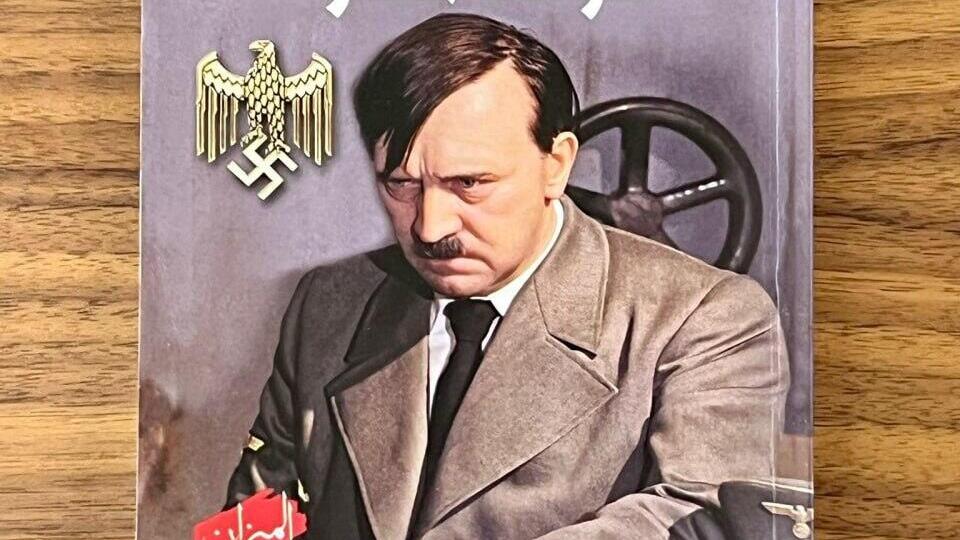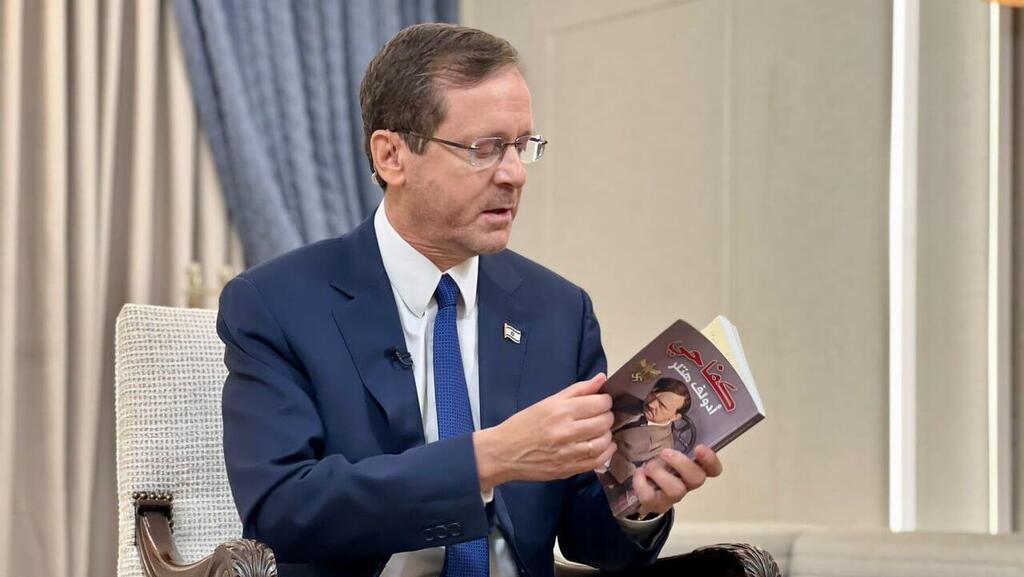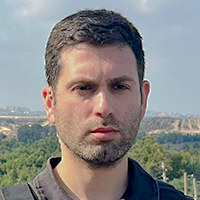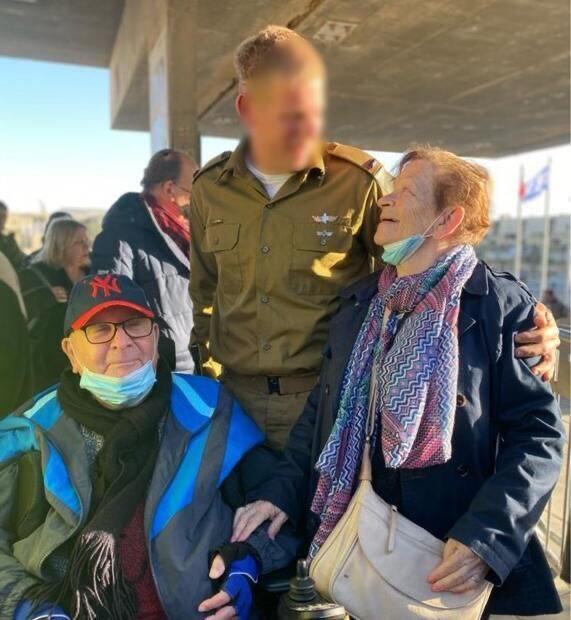Getting your Trinity Audio player ready...
An IDF soldier who is the grandson of Holocaust survivors, found a copy of Mein Kampf translated into Arabic, in a Gazan home of a Hamas terrorists during the fighting in the Strip.
Read more:
After clearing a large structure from terrorists on the third day of the battles in Gaza, Lieutenant N. said he found something he never expected: "It was dawn; we aimed to execute a tactical deception on the enemy and discovered an underground bunker, a sort of subterranean space, with a stash of food that was consumed by fleeing terrorists."
3 View gallery


A copy of Adolf Hitler's Mein Kampf translated into Arabic
(Photo: Office of the President)
"We found a substantial amount of weapons there, and later, in another building, we searched the rooms that served the terrorists. One of my soldiers approached me during the sweep and told me that he found a book with a picture of Hitler on it, and immediately I connected the dots. I took the book in my hands and realized it was Mein Kampf in Arabic, located next to Mickey Mouse dolls, paired with jihadist flags, and pink bedding."
"It struck me profoundly that here I am, fighting against the same ideology that sought to murder my grandfather and grandmother 80 years ago and nearly annihilate my people. I realized it is deeply rooted in their education. I flipped through the book and saw that the children who read it made remarks, and wrote apologies. An Arabic-speaking soldier in the unit told me that the Gazans who read it wrote comments about Hitler. At that moment, I understood that I was not just fighting against Hamas but against the idea of exterminating our people just because we were Jews and Israelis. In hindsight, we understood that it belonged to a senior Hamas member."
3 View gallery


President Isaac Herzog with a copy of Mein Kampf found in a senior Hamas terrorists in Gaza
(Photo: Office of the President)
Lieutenant N urgently requested to publicize the shocking discovery made by his soldiers to bring it to the world's attention. Indeed, it quickly reached the hands of President Isaac Herzog, who exposed it for the first time in an interview with the BBC. Lieutenant N said, "Within a few days when we went out for a break, I told my grandfather that I found the book with my soldiers. He didn't say much; he just smiled because he always chose his words carefully. We looked at each other, didn't say a word, and the mutual gaze was enough to understand each other."
"The Holocaust narrative was present throughout my family's life, always intriguing and captivating me," Lieutenant N. shared with Ynet. "I never ceased to ask questions about it during numerous conversations with my grandfather, even from my early childhood." His grandparents, David and Gita, were transferred from the Dutch city of Haarlem to the Bergen-Belsen concentration camp at the end of the war.
"The Holocaust shook our lives. I can't eat cauliflower, and neither can my family because it was one of the few foods my grandfather ate in the camp and ghetto," N. recounted. "On my birthday as a teenager, I found a book about the Holocaust that mentioned my great-grandfather, who was a prominent rabbi in Holland. It led me to engage in prolonged discussions with my grandparents about what happened then. Both of them were childhood friends in the ghetto, bringing a small suitcase each day to the kindergarten, fearing they might be sent to camps and never return."



